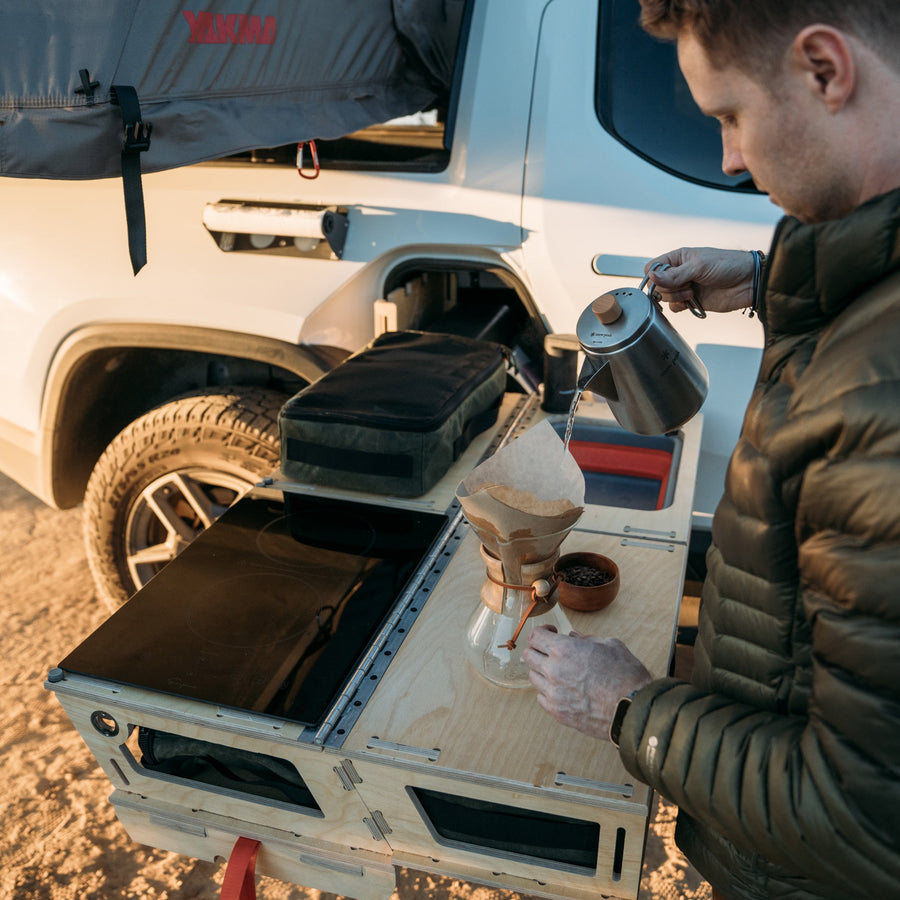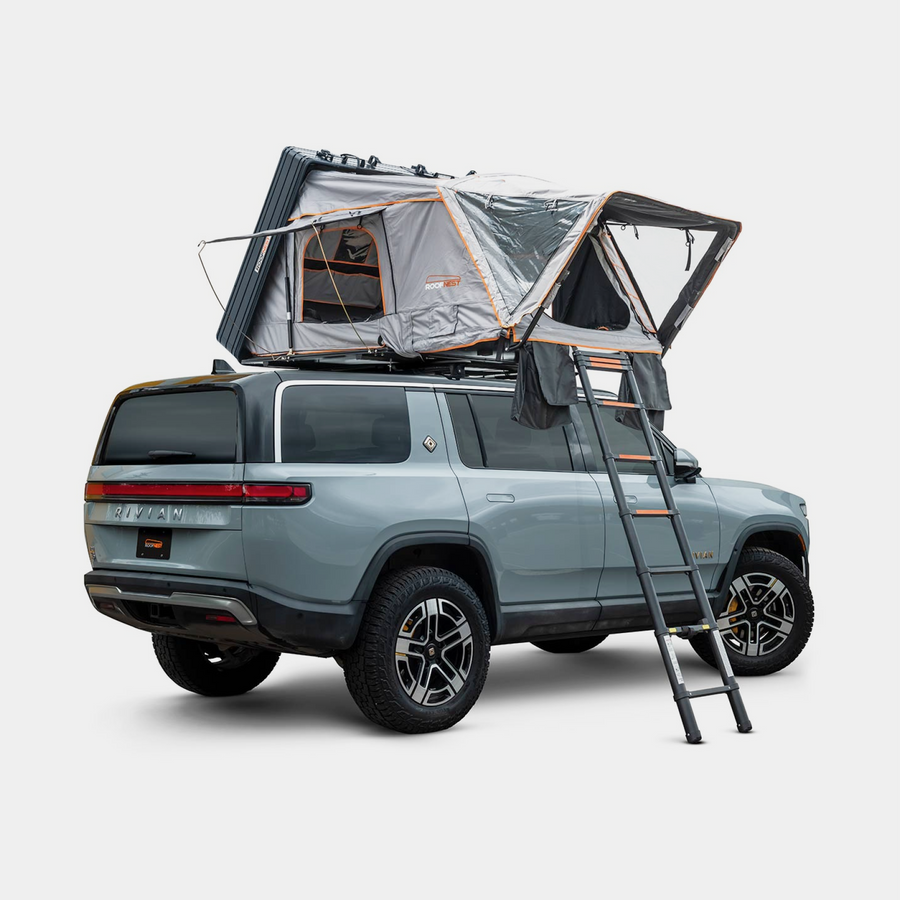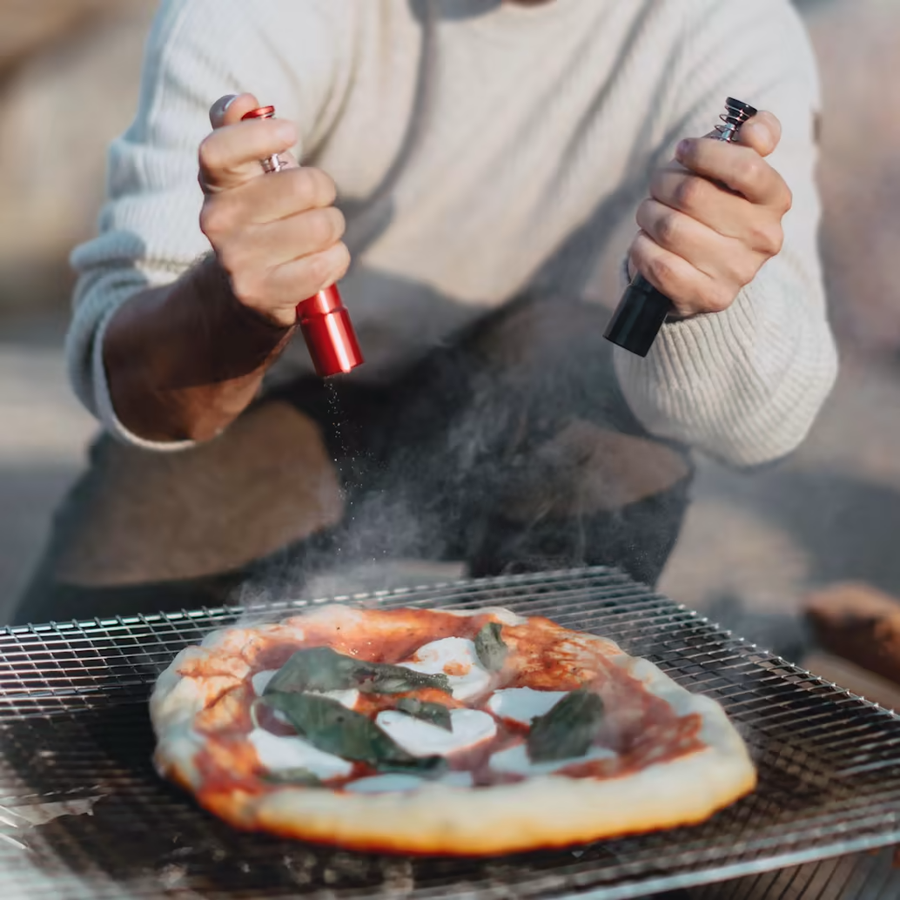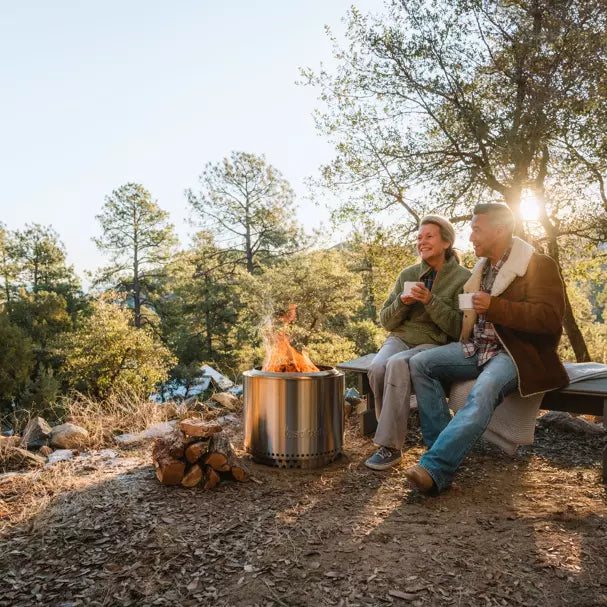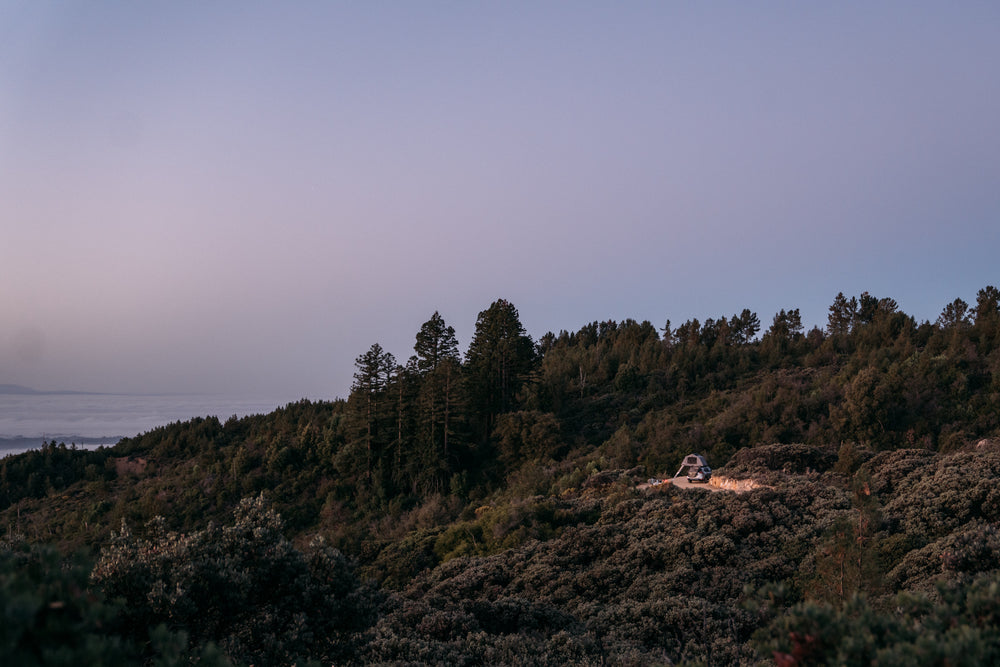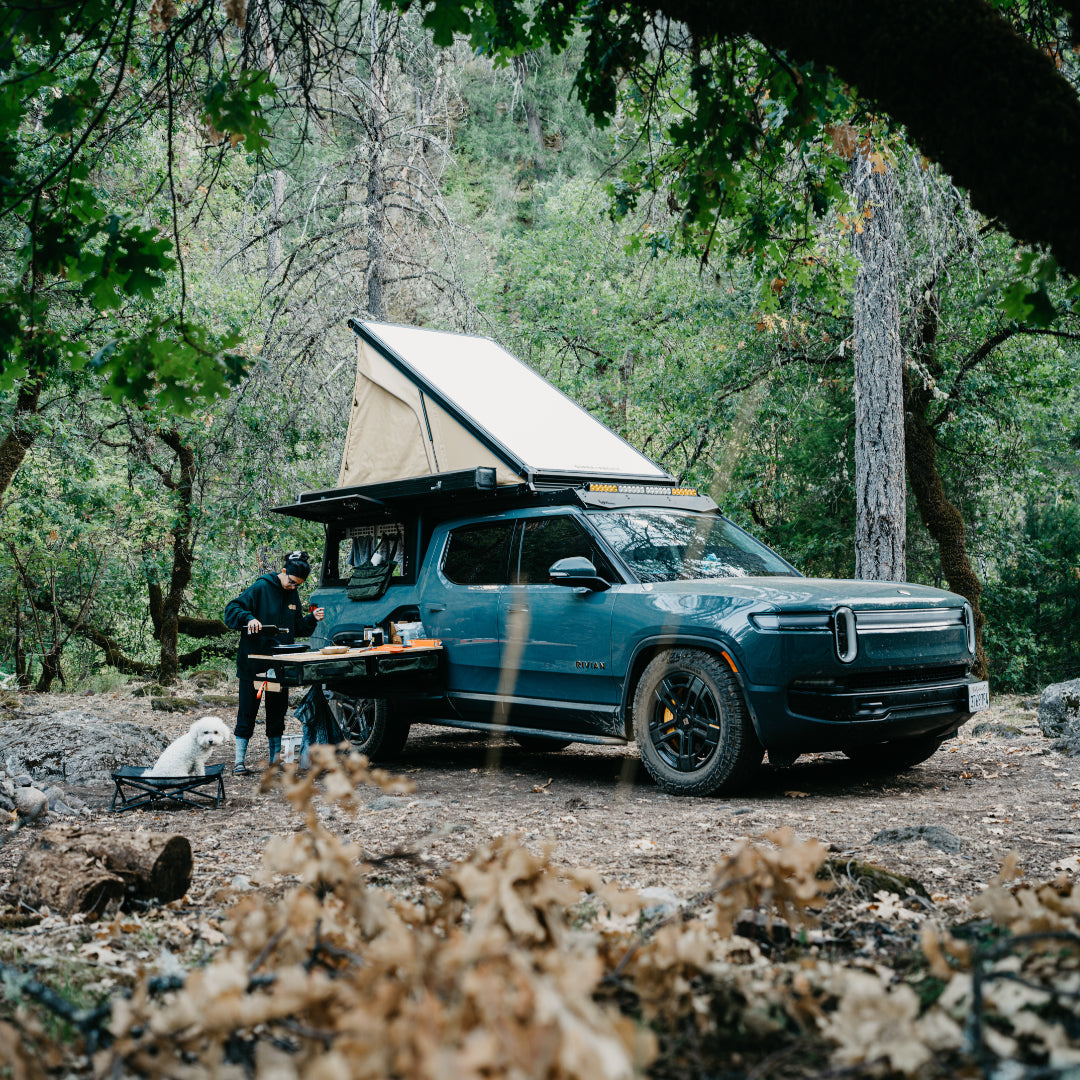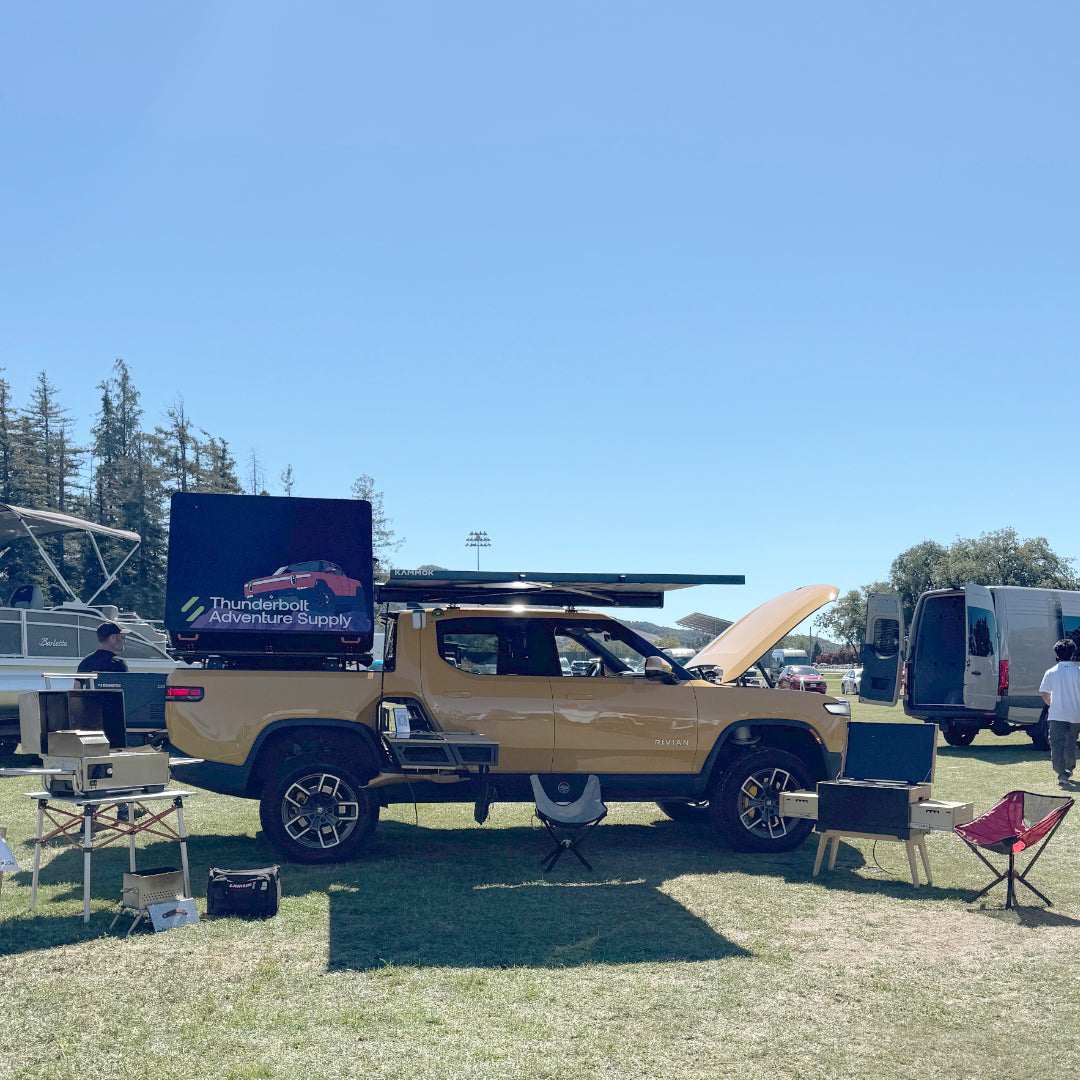Climate Change and our EV

This summer, California was expecting, or maybe hoping, for a mild fire season similar to last year. But the heat that has settled over much of the country quickly dried the abundant vegetation that two consecutive wet winters had brought. We’re only halfway through the summer, and already an area the size of Deleware has burned. One fire, the Park Fire near Chico, has already burned more than all of the fires in 2022 and 2023 combined.
We were planning to meet friends for a camping trip up north of Shasta this weekend, but the weather and wind patterns mean that the air quality is bad and getting worse. It wasn’t an entirely unexpected turn of events, but it was disappointing. With sales of our new Overland Kitchens going strong, we’ve been working through weekends. This was going to be our first camping trip of the summer. And while wildfires are not a new phenomenon, they are increasing in frequency and intensity.
Climate change can not be directly implicated in any singular weather event or wildfire. But the facts are that we’ve lived in San Francisco for nearly three decades, and only in the past few years have we come to expect several days a year of bad air due to wildfires. So aside from encouraging world leaders to take action, what are we to do about this global crisis?
What and how much we drive is one of the most powerful ways we, as individuals, can reduce our climate impact. We’d wanted an electric vehicle for years. But we are truck people. Even before we started Thunderbolt, our R1T was being used as a work truck, just like our Tacoma before it. The photo at the top of this page is from a neighborhood volunteer gardening event. And one of the first errands we ran in the R1T was to take a few loads of debris to the local dump (the guy staffing the scales was pretty amazed). So, the Rivian was the first EV that made sense for us. Because we’ve opted into 100% renewable power from our utility, we know that the electricity that we pump into our truck is carbon-free. When we’re on the road, we often choose to charge at a Rivian Adventure Network (RAN) location, not only for the seamless experience but also because Rivian opts for 100% renewable energy to power their charging stations.
When we don’t have to drive somewhere, we try not to drive. We’ve chosen to live in the amenity-rich central part of town. We can walk or ride our bikes nearly anywhere. We taught our kids to take public transit when they were young, and they prefer to ride their bikes when possible. In fact, our daughter didn’t feel the need to get her driver’s license until earlier this year at age 21. She drove home the fact that she could ride her bike wherever she needed to go by making a solo cross-country trek last summer logging more than 5,000 miles. Matthew has even figured out how to take his folding kayak to the bay by bicycle using a trailer that can also be loaded with groceries or picnic supplies.
While we certainly love our truck for its performance aspects—and 0-60 in 3-point-stupid seconds is fun a few times—we’re at least as enamored with Rivian’s commitment to sustainability as we are with its performance. And while we’re disappointed that the Park Fire interrupted our weekend plans, we are devastated for the communities who have lost homes and grateful that, at least so far, no one has lost their life.


Our daughter upon her arrival in New York City three months after she left San Francisco.
